IceTropin 100IU
$325 $278
Package: 10 vial (10IU/ml 1ml)
Active Substance: Somatropin
Product Name: Human Growth Hormone, HGH, Tropin
IceTropin by Ice Pharmaceuticals
Pituitary and hypothalamic hormones and analogs. Somatropin and somatropin agonists. H01AC01.
CLINICAL PHARMACOLOGY
IceTropin, Ice Pharmaceuticals (somatropin, rDNA origin, for injection) is a polypeptide hormone of recombinant DNA origin. It has been demonstrated that somatropin is therapeutically equivalent to human growth hormone secreted by the pituitary gland. In children with inadequate endogenous growth hormone, somatropin stimulates linear growth and increases growth speed. IceTropin administration results in the increase in growth velocity and growth factor of I levels insulin-like (IFG-I), similar to that produced by hGH. Similar effects of IceTropin and hGH include:
A. Tissue growth
Cell Growth — Total numbers of muscle cells are reduced in GH deficient children. IceTropin increases the number and size of muscle cells in such children.
Skeletal Growth — IceTropin stimulates skeletal growth in children with GH deficiency as a result of effects on the growth plates (epiphyses) of long bones. Concentrations of IGF-I, which play a role in skeletal growth, are low in the serum of GH-deficient children but increase during somatropin treatment in most patients. The stimulation of skeletal growth increases linear growth rate (height velocity) in most somatropin-treated children.
Organ growth — GH influences the size of internal organs and increases the weight of erythrocytes.
B. Protein Metabolism
Linear growth is facilitated in part by increased cellular protein synthesis as reflected by nitrogen retention, which can be demonstrated by decreased urinary nitrogen excretion and serum urea nitrogen.
C. Carbohydrate Metabolism
GH has a physiological role in the maintenance of normoglycemia during times of substrate restriction (e.g., fasting), via mechanisms such as stimulation of hepatic gluconeogenesis and suppression of insulin-stimulated glucose uptake by peripheral tissues. Because of these actions, GH is considered an insulin antagonist with respect to carbohydrate metabolism. Consequently, the fasting hypoglycemia that may occur in some children with hypopituitarism may be improved by somatropin treatment. As an extension of its physiological actions, supraphysiological GH concentrations may increase glucose production sufficiently to stimulate insulin secretion to maintain normoglycemia. Large doses of somatropin may impair glucose tolerance if compensatory insulin secretion is inadequate. Administration of somatropin to healthy adults and patients with Turner syndrome resulted in increases in mean serum fasting and postprandial insulin concentrations, although mean values remained within the normal range. In addition, mean HbA1c concentrations and mean fasting and postprandial glucose concentrations remained in the normal range.
D. Lipid Metabolism
Somatropin stimulates intracellular lipolysis, and administration of somatropin leads to an increase in plasma free fatty acids and triglycerides. Untreated GH deficiency is associated with increased body fat stores, including increased abdominal visceral and subcutaneous adipose tissue. Treatment of GH-deficient patients with somatropin results in a general reduction of fat stores, and decreased serum concentrations of low-density lipoprotein (LDL) cholesterol.
E. Mineral Metabolism
Administration of somatropin results in an increase in total body potassium and phosphorus and to a lesser extent sodium, probably as the result of cell growth. Serum concentrations of inorganic phosphate increase in somatropin-treated GH deficient children because of the metabolic activities associated with bone growth. Although urinary calcium excretion is increased, there is a simultaneous increase in calcium absorption from the intestine. Consequently, serum calcium concentrations generally are not altered, although negative calcium balance may occur occasionally during somatropin treatment. Associated with the changes in mineral metabolism, the parathyroid hormone may increase during somatropin treatment.
F. Connective Tissue Metabolism
Icetropin stimulates the synthesis of chondroitin sulfate and collagen and increases the urinary excretion of hydroxyproline.
Pharmacokinetics
After subcutaneous administration of IceTropin in dose of 0.1mg/kg, the mean half-lives of 3.01 hours for first dose and 2.77 hours for next doses. The elimination speed: 0.23±0.04(FD) and 0.25±0.04/hr (ND), absorption speed: 0.43±0.05 (FD) and 0.48±0.04/hr (ND). Serum clearance (CL/F): 0.32±0.02 (FD) and 0.54±0.09L/hr/kg (ND).; FD – first dose, ND – next dose.
IceTropin by Ice Pharma THERAPEUTIC INDICATIONS
THERAPEUTIC INDICATIONS
Growth disturbance due to insufficient secretion of growth hormone or associated with gonadal dysgenesis or Turner’s syndrome which is a chromosome aberration. Growth disturbance in prepubertal children with chronic renal insufficiency.
Replacement therapy in adults with pronounced growth hormone deficiency. Promote wound healing and attenuate catabolic responses in severe burns, sepsis, multiple trauma, major operations, acute pancreatitis and intestinal fistula. Topical application to promote wound healing in the acute wound or chronic ulcers, such as burns, diabetic foot ulcer, chronic venous ulcer and decubital ulcer.
DOSAGE AND ADMINISTRATION
IceTropin is administrated intramuscular or subcutaneous daily, after mixing of lyophilized powder with 1-5 ml of water for injections, preferably in the evening before bedtime.
The dose is determined individually by the doctor, according to weight and body surface area.
Growth retardation in children due to inadequate secretion of endogenous growth hormone: the recommended dose is 0.5-0.7 IU/kg/week or 14-20 IU/m2/week. Sometimes can be used higher doses.
Gonadal dysgenesis (Turner syndrome): the recommended dose is 1.0 IU/kg/week or 28 IU/m2/week.
Chronic Kidney Disease: 30 IU/m2/week. May require higher doses if the growth rate is too small. May be necessary to adjust the dose after 6 weeks of treatment.
Growth hormone deficiency in adults: starting dose recommended is 0.125 IU/kg/week for about 4 weeks. The dose should be later adjusted depending on the adverse reactions and with determining factor of growth I insulin-like (IGF-I) in the blood serum as a measure of orientation.
The weekly dose should be divided into seven subcutaneous injections. To prevent lipoatrophy is recommended alternating the places of administration.
If a dose was missed, the next dose will not be doubled the next day, but will continue treatment according to the obtained regime of dosing .
Administration
The vial septum should be wiped with alcohol or alcoholic antiseptic solution to prevent contamination content on repeated needle insertion. It is recommended that IceTropin be administered by syringe and a sterile needle. The syringes should be of small enough volume with reasonable accuracy.
Occasionally, after refrigeration, opacification may occur.
This is not characteristic of protein preparations as IceTropin (growth hormone). Allow the product to warm to room temperature. If opacification persists or determines suspended particles the content needs to be eliminated.
ADVERSE REACTIONS
In clinical trials in adults adverse reactions were reported in approximately 30-40% of patients, especially due to fluid retention (edema). These effects occurred shortly after initiation of therapy, with reducing the incidence and prevalence over time and rarely influencing daily activities.
MedDRA frequency convention
Very common (>1/10)
Common (> 1/100 and <1>
Uncommon (> 1/1000, <1>
Rare (> 1/10000 and <1>
Very rare (<1>
With unknown frequency (can not be estimated from available data).
Immune system disorders: very rare: the formation of antibodies, which do not influence treatment results.
Endocrine disorders: with unknown frequency: hypothyroidism.
Nervous system disorders: with unknown frequency: severe and recurrent cephalalgia.
Eye disorders: with unknown frequency: visual disturbances.
Ear and vestibular disorders: with unknown frequency: otitis media.
Vascular disorders: with unknown frequency: arterial hypertension.
Gastrointestinal disorders: with unknown frequency: nausea, vomiting.
Musculoskeletal and connective tissue disorders: with unknown frequency: scoliosis, arthralgia, pain in the hip femoral joint, arthritis, myalgias.
Reproductive system and breast disorders: with unknown frequency: gynecomastia.
General disorders and administration site conditions: uncommon: pain at the injection site; with unknown frequency: mild edema and transient, especially when initiating the therapy.
Investigations: with unknown frequency: hyperglycemia (which normalizes at the continuation or suspension of treatment), hyperlipidemia.
CONTRAINDICATIONS
Known hypersensitivity to growth hormone or any of the excipients.
Pregnancy and lactation.
Stimulating the growth in children with closed bone epiphysis.
Retinopathy diabetic proliferative or pre-proliferative.
Icetropin should not be administrated when there is evidence of activity of a tumor. Intracranial tumors must be inactive and antitumor therapy should be completed before starting the GH therapy. Treatment should be discontinued if are evidence of tumor growth. Because growth hormone deficiency may be an early symptom of the presence of the tumor of hypophysis (or in rare cases, other brain tumors), the presence of such tumors should be excluded before the initiation of treatment with somatropin.
Patients in critical condition after complications following open heart surgical interventions, abdominal surgery or polytrauma accidents, with acute respiratory insufficiency.
Patients with Prader-Willi syndrome with severe obesity or severe respiratory insufficiency. Except, when patients with Prader-Willi syndrome are diagnosed with growth hormone deficiency caused by congenital Prader-Willi syndrome.
OVERDOSAGE
The effect of high doses of somatropin has not been studied. Are not known the effects of overdosing or poisoning. If it is registered an overdose of IceTropin, it is recommended going to the doctor.
Acute overdose of IceTropin may lead initially to hypoglycemia, followed by hyperglycemia.
Chronic overdosage may result in signs and symptoms of gigantism and/or acromegaly corresponding with the known effects of an excess of human somatropin.
STORAGE INSTRUCTIONS
Store in the refrigerator [36°F to 46°F (2°C to 8°C)].
DO NOT FREEZE.
Keep out of the reach and sight of children.
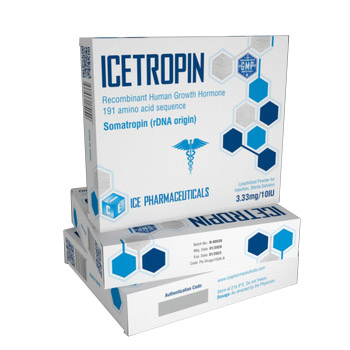
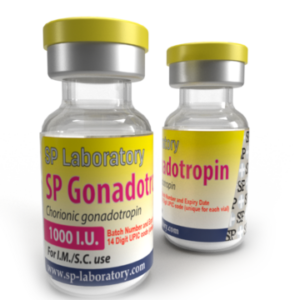
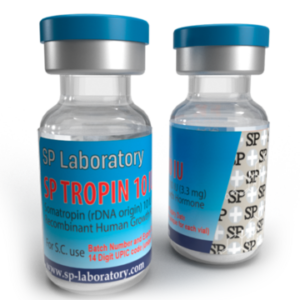
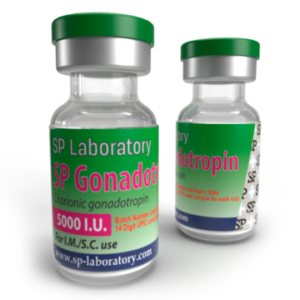
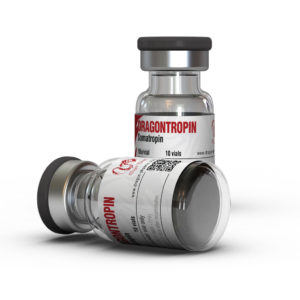
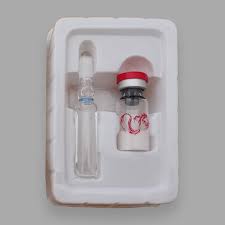
Reviews
There are no reviews yet.